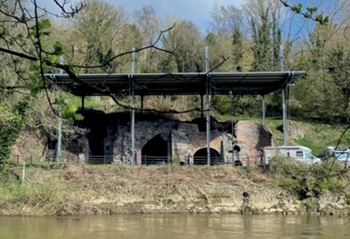Pre-construction services agreement PCSA
Contents |
[edit] What are Pre-Construction Services Agreements?
Pre-Construction Services Agreements (PCSAs), sometimes referred to as Pre-Contract Services Agreements, enable clients to employ contractors before the main contract for the construction of the works has been awarded. Typically they are part of a two-stage tender process, used in the first stage to procure contractor involvement in the design process, where the second stage procures the construction of the project.
Early appointment of the contractor under a Pre-Construction Services Agreement can allow them to:
- Contribute to the design process.
- Advise on the buildability, sequencing, and risk of the construction works.
- Advise on the packaging of the works for sub-contractors and suppliers (and the risks of interfaces between packages).
- Advise on the selection of specialist contractors.
- Help develop the cost plan and construction programme.
- Help develop the method of construction.
- Obtain prices for work packages from sub-contractors or suppliers on an open book basis.
- Prepare a site layout plan for the construction stage showing temporary facilities.
- Draft the preliminaries for specialist and trade contractor bid documents.
- Assist with any planning application on matters concerning the build phase, such as; waste disposal proposals, construction traffic movements, tree preservation protection, etc.
This early involvement of the contractor should improve the buildability and cost-certainty of the design as well as creating a better integrated project team and reducing the likelihood of disputes.
For more information see: Early contractor involvement.
Pre-Construction Services Agreements are often used on design and build projects to obtain early input from the contractor. They can also be used to obtain pre-construction services by specialists, appointed either by the contractor, or by the client (for example on a construction management contract) or on Private Finance Initiative (PFI) or Public Private Partnership (PPP) projects to obtain contractor input to a consortium bidding for a project. The JCT publishes two standard forms of PCSA, one for general contractors and one for specialists.
[edit] What is agreed in a Pre-Construction Services Agreement?
The Pre-Construction Services Agreement will define the services that are required of the contractor during the pre-construction phase and will generally be similar to a consultancy agreement. It should make clear whether the contractor is undertaking design work, whether they will have any design liability, and what will happen to this liability if they are not appointed for the second stage (the construction works). It should also set out the method of payment, and any provisions for deferred payment.
[edit] What are the advantages and disadvantages of Pre-Construction Services Agreements?
The contractor appointed under the Pre-Construction Services Agreement will not necessarily be appointed for the second-stage construction contract. However, the client inevitably loses leverage in the second-stage of the tender negotiation process, as the contractor is already embedded in the project team and potential competitors lose interest once they find out that another contractor has been awarded the first-stage tender.
However, a longer period of familiarity with the project creates better relationships as well as a reduction in learning curves and programme performance, and so, whilst tender prices for two-stage contracts may initially be higher than single-stage tenders, which are subject to full competition throughout, the final account tends to include fewer variations and fewer claims. Competition can be introduced into the second stage by an open-book approach to the tendering of sub-contracts.
It is important that the client ensures they have some means of securing an alternative bid if second-stage negotiations fail, albeit this is likely to result in delays and difficulties regarding design liability.
[edit] Related articles on Designing Buildings
- Appointing consultants.
- Construction manager.
- Construction contract.
- Design and build.
- Design liability.
- Early contractor involvement.
- Preliminaries.
- Private Finance Initiative.
- Procurement.
- Public Private Partnership.
- Specialist contractor.
- Sub contractor.
- Trade contractor.
- Two-stage tender.
[edit] External references
- Maxwell Winward: Pre-Construction Services Agreements.
Featured articles and news
Art of Building CIOB photographic competition public vote
The last week to vote for a winner until 10 January 2025.
The future of the Grenfell Tower site
Principles, promises, recommendations and a decision expected in February 2025.
20 years of the Chartered Environmentalist
If not now, when?
Journeys in Industrious England
Thomas Baskerville’s expeditions in the 1600s.
Top 25 Building Safety Wiki articles of 2024
Take a look what most people have been reading about.
Life and death at Highgate Cemetery
Balancing burials and tourism.
The 25 most read articles on DB for 2024
Design portion to procurement route and all between.
The act of preservation may sometimes be futile.
Twas the site before Christmas...
A rhyme for the industry and a thankyou to our supporters.
Plumbing and heating systems in schools
New apprentice pay rates coming into effect in the new year
Addressing the impact of recent national minimum wage changes.
EBSSA support for the new industry competence structure
The Engineering and Building Services Skills Authority, in working group 2.
Notes from BSRIA Sustainable Futures briefing
From carbon down to the all important customer: Redefining Retrofit for Net Zero Living.
Principal Designer: A New Opportunity for Architects
ACA launches a Principal Designer Register for architects.






















Comments
[edit] To make a comment about this article, or to suggest changes, click 'Add a comment' above. Separate your comments from any existing comments by inserting a horizontal line.